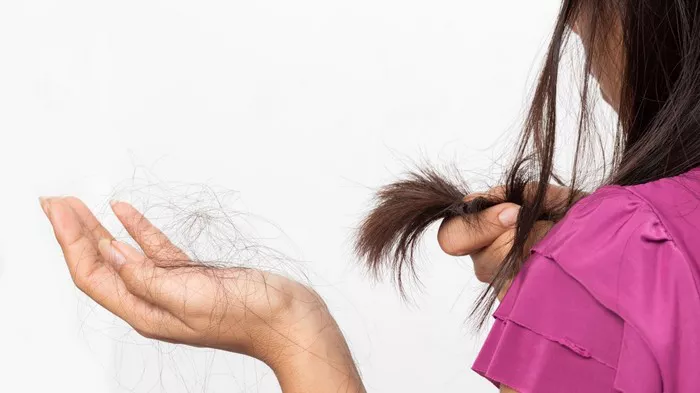Hair loss can be a distressing experience for many individuals, impacting self-esteem and confidence. While various factors contribute to hair loss, including genetics, hormonal imbalances, and lifestyle choices, vitamin deficiencies play a significant role. In this comprehensive guide, we delve into the vitamins essential for healthy hair growth, explore how deficiencies can lead to hair loss, and discuss strategies to address these deficiencies effectively.
The Role of Vitamins in Hair Health
Vitamins are crucial micronutrients that play diverse roles in the body, including supporting hair growth and maintenance. Several vitamins are particularly vital for healthy hair, each contributing to different aspects of hair health:
1. Vitamin A: This vitamin aids in the production of sebum, an oily substance that moisturizes the scalp and keeps hair follicles healthy. However, excessive intake of vitamin A can have adverse effects on hair health, leading to hair loss.
2. B Vitamins: B vitamins, including Biotin (B7), Niacin (B3), and Cobalamin (B12), are essential for hair growth. Biotin, in particular, is often associated with promoting hair growth and reducing hair shedding.
3. Vitamin C: As a powerful antioxidant, vitamin C helps protect hair follicles from damage caused by free radicals. It also plays a role in collagen production, which is essential for maintaining the structure of hair strands.
4. Vitamin D: Vitamin D receptors are present in hair follicles, indicating its importance in hair growth. Deficiency in vitamin D has been linked to alopecia, a condition characterized by hair loss.
5. Vitamin E: This vitamin helps improve blood circulation, including to the scalp, which can promote hair growth. Additionally, it has antioxidant properties that protect hair follicles from damage.
6. Vitamin K: While less commonly discussed in relation to hair health, vitamin K is involved in the process of calcium binding in the body, which may indirectly influence hair growth.
7. Folic Acid (Vitamin B9): Folic acid is crucial for cell division, including the cells responsible for hair growth. Deficiency in folic acid can lead to impaired hair growth and hair thinning.
Identifying Vitamin Deficiencies
Determining whether you have a vitamin deficiency contributing to your hair loss requires a thorough evaluation of your diet, lifestyle, and possibly medical history. Some signs that may indicate a deficiency in specific vitamins include:
- Biotin (B7): Brittle nails, dry skin, hair loss
- Niacin (B3): Flaky scalp, hair thinning
- Vitamin D: Fatigue, muscle weakness, frequent illnesses
- Vitamin E: Dry, dull hair, slow hair growth
- Vitamin A: Dry skin, brittle hair, hair loss
- Vitamin C: Slow wound healing, frequent infections
- Vitamin K: Easy bruising, excessive bleeding
However, these symptoms can also be indicative of other health issues, so it’s essential to consult a healthcare professional for proper diagnosis and treatment.
Causes of Vitamin Deficiencies
Several factors can contribute to vitamin deficiencies that may lead to hair loss:
1. Poor Diet: A diet lacking in variety and essential nutrients can result in vitamin deficiencies. This is particularly common in individuals who consume a lot of processed foods and fast food, which are often low in vitamins and minerals.
2. Underlying Health Conditions: Certain medical conditions can interfere with the absorption, metabolism, or utilization of vitamins in the body. Conditions such as celiac disease, Crohn’s disease, and gastritis can impair nutrient absorption in the gut.
3. Medications: Some medications may interfere with the body’s ability to absorb or utilize certain vitamins. For example, antacids can reduce stomach acid, which is necessary for the absorption of vitamin B12.
4. Lifestyle Factors: Smoking, excessive alcohol consumption, and chronic stress can deplete vitamins and antioxidants in the body, contributing to deficiencies.
5. Genetic Factors: Some individuals may have genetic variations that affect their body’s ability to absorb or utilize certain vitamins efficiently, increasing their risk of deficiencies.
Addressing Vitamin Deficiencies for Hair Loss Prevention
If you suspect that a vitamin deficiency is contributing to your hair loss, there are several steps you can take to address the issue:
1. Consult a Healthcare Professional: Before starting any supplementation regimen, it’s crucial to consult with a healthcare professional, such as a doctor or registered dietitian. They can help assess your nutrient status through blood tests and provide personalized recommendations.
2. Improve Your Diet: Focus on consuming a balanced diet rich in whole foods, including fruits, vegetables, lean proteins, whole grains, and healthy fats. Incorporate a variety of foods to ensure you’re getting a wide range of vitamins and minerals.
3. Consider Supplements: If you have confirmed deficiencies or are unable to meet your nutrient needs through diet alone, your healthcare provider may recommend supplements. It’s essential to choose high-quality supplements and follow dosage recommendations carefully.
4. Manage Underlying Health Conditions: If you have underlying health conditions contributing to nutrient deficiencies, work with your healthcare provider to manage these conditions effectively. This may involve medication, dietary modifications, or lifestyle changes.
5. Reduce Stress and Support Overall Health: Practicing stress-reduction techniques, such as meditation, yoga, or deep breathing exercises, can help support overall health and reduce the risk of nutrient depletion. Additionally, getting adequate sleep, staying hydrated, and exercising regularly are essential for maintaining optimal health.
6. Monitor Progress: Keep track of any changes in your hair health and overall well-being as you address vitamin deficiencies. It may take time to see improvements, so be patient and consistent with your efforts.
Conclusion
Vitamin deficiencies can significantly impact hair health and contribute to hair loss. By understanding the role of vitamins in hair growth, identifying potential deficiencies, and taking proactive steps to address them, you can support healthy hair growth and prevent further loss. Remember to consult with a healthcare professional for personalized guidance and recommendations tailored to your individual needs. With proper care and attention to nutrition, you can nurture your hair from the inside out and enjoy luscious locks for years to come.


